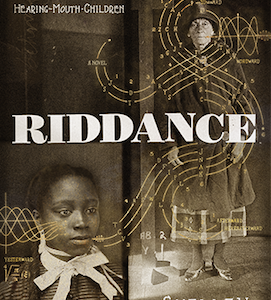These are boom days for writers and readers looking for thoughtful, hard-hitting stories about real-life crime. Whether you’re in the mood for a high-octane page-turner, an investigation, or a penetrating memoir, chances are there’s a book (and many a podcast or docu-series) out there for you. Every month, we round up the best new crime non-fiction with recommendations from CrimeReads staff. Here are the selections for October:
Fox Butterfield, In My Father’s House (Knopf)
In My Father’s House is a family portrait and a study in big ideas that begins with a provocative point: that a large percentage of America’s crime can be traced back to a relatively small number of families. Butterfield, a Pulitzer Prize-winner and a New York Times stalwart, dives into this insight with a close study of one Oregon family that has sent generations of its members to prison. This is the book that’s going to be posing difficult questions about mass incarceration, cultural marginality, and persistent communities of lawlessness.
Susan Orleans, The Library Book (Scribner)
Readers inevitably and happily plunge themselves into the stories Orlean weaves, whether she’s writing about Rin Tin Tin or the eccentric world of orchid collectors. Here, Orlean both explores the aftermath of a 1986 fire at the main branch of the Los Angeles Public Library which burned for seven hours and consumed 400,000 books. But Orlean’s book is more than an examination of a possible case of arson: it’s a love letter to libraries and the people who populate them.
Martin McKenzie-Murray, A Murder Without Motive (Scribe)
Martin McKenzie-Murray has been steeped in the world of police and investigations for the better part of his life in Canberra, Australia, but one case has haunted him more than any others, the murder of a young woman from Perth and the arrest of a man who traveled in the same orbits as McKenzie-Murray. A Murder Without Motive is a deeply felt, at times agonizingly searching crime book—part procedural, part memoir—that evokes a distinct time and place in Australia’s recent history and shows how the cultural forces thriving then have been passed down to today, claiming more and more victims.
Alton Logan with Berl Falbaum, Justice Failed (Counterpoint)
Alton Logan served twenty-six years of a life sentence for a murder he didn’t commit, and his story is a powerful indictment of the justice system and of a professional ethical code too severe to keep pace with common sense morality. While Logan was serving his sentence, another convict admitted to his lawyers he was the real killer. But those lawyers, bound by an unforgiving professional code of ethics, couldn’t inform anyone, couldn’t bring the evidence to light for years. Justice Failed delivers Logan’s heartbreaking story in his own words and also weaves in a withering analysis of the legal forces that conspired to rob him of his freedom for so long.
Stephen L. Carter, Invisible (Henry Holt)
Stephen L. Carter, a Yale Law professor and one of the country’s first rate legal minds, is well known to high-brow mystery and thriller fans as the author of The Emperor of Ocean Park and Back Channel. He’s also, as it turns out, the grandson of a trailblazing lawyer named Eunice Hunton Carter, who was part of an elite prosecutorial team (the team’s only non white male member) taking on the mob in 1940’s New York City, and was the mind behind the plan that ultimately took down Lucky Luciano. In Invisible, Carter tells his grandmother’s powerful story: a story about crime, justice, race in America, the Red Scare, gender inequality, and family strife.






















